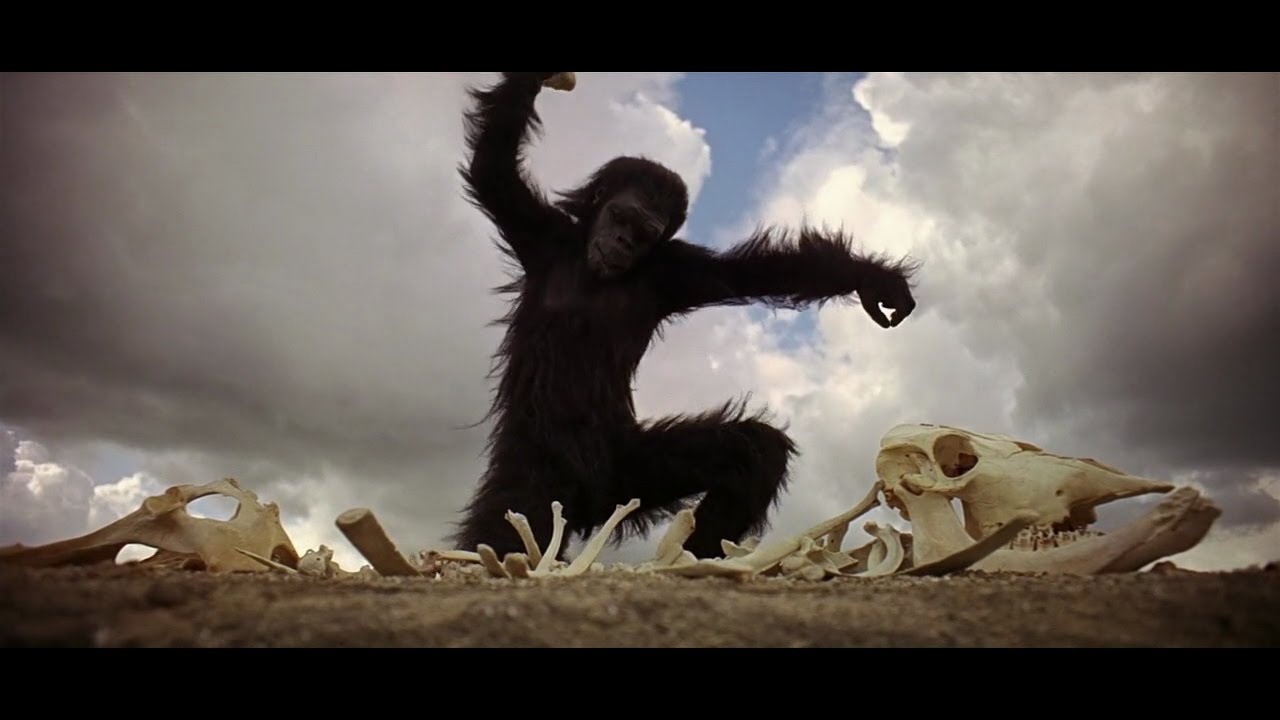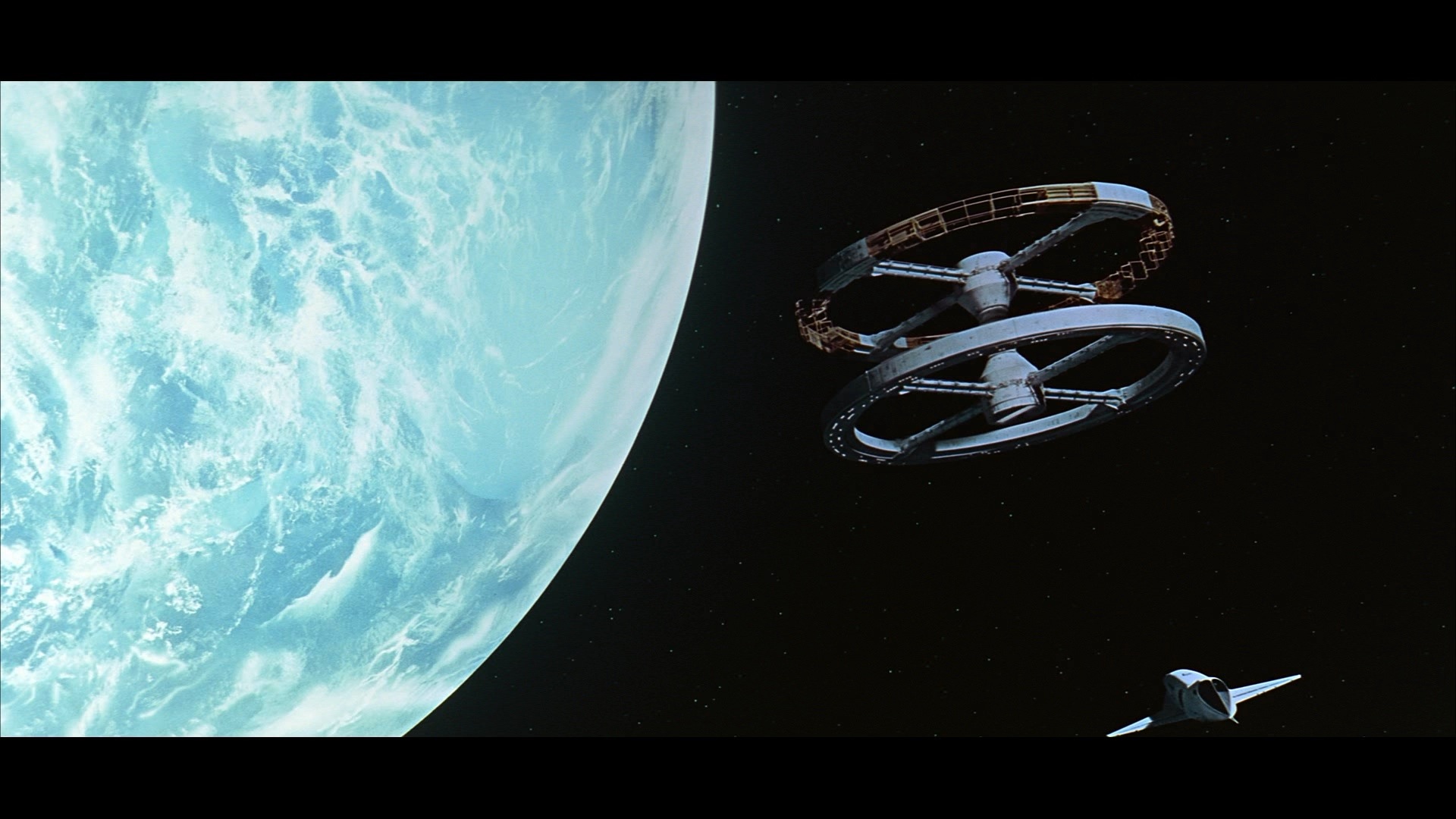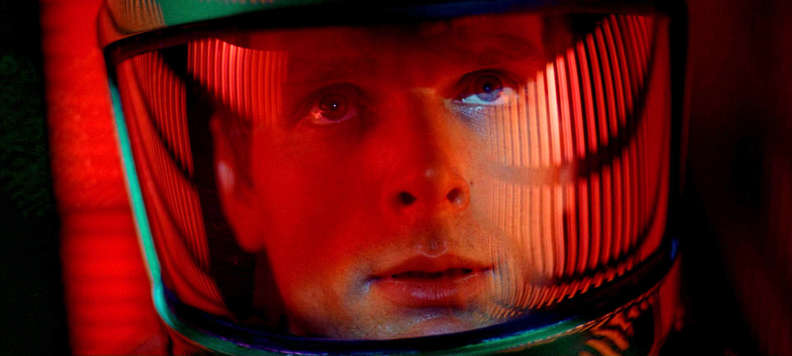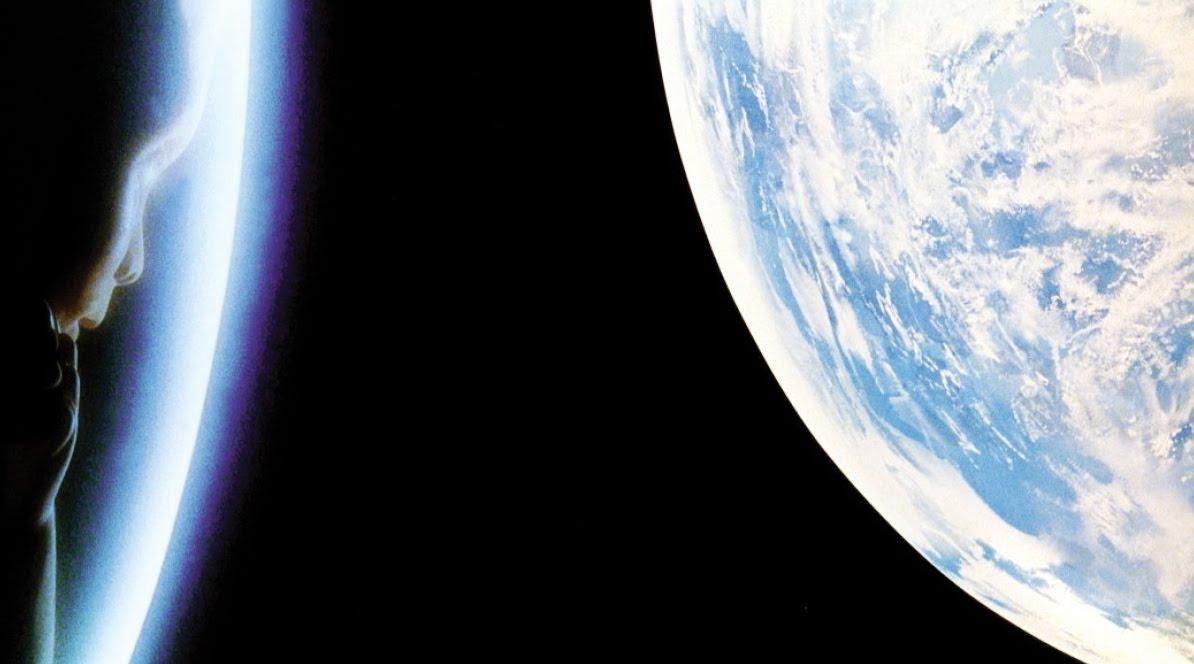2001 A space Odyssey, Tools, and well-being
One way of describing the human species is that we are makers and users of tools. It’s a fundamental way in which we differ from other animals. When I say tools I’m not just talking about hammers and screwdrivers. I’m talking about everything we create and use. Houses, cars, computers, guitars, power plants, medicine, hydrogen bombs, cheese graters, space ships, and tooth-picks.
When a tool first comes into popular use, it’s effect is not clear. It takes time for us to figure out what it means for the human experience, whether it represents an improvement, or a net reduction in human well-being. However, tools rarely fall neatly into these two categories. Their ultimate impact on conscious states is determined by the wisdom with which they are used. For example the drug Heroin when used sparingly can alleviate someones suffering, but when abused can lead to the complete destruction of a life. So is Heroin good or bad? It depends on how it is used. The same goes for books, nuclear power, and mobile phones.
Mobile phones are an interesting case, and on initial analysis they would seem to be incredible tools that add huge amounts to people lives. However, no-one predicted how they would eventually be used. Most people’s daily interaction with smart phones includes hours of mindlessly scrolling through social media news feeds, invoking an empty joyless state of mind, to the point where their net effect on human conscious experience may well be negative. The adverse impact of the loss of attention span they engender is beginning to be understood, and the prognosis is not good.
I often think about Stanley Kubrick’s master piece 2001: A Space Odyssey. One way of viewing the story, is as a treatise on humanity’s relationship to tools. The iconic opening scene of the film depicts the first human ancestor to use a tool. An ape like proto-human picks up a bone of a dead animal and kills a member of a rival tribe to secure access to a water source.

The film then abruptly cuts to the year 2001, with an expansive shot of a space ship en-route to the moon. The rudimentary bone and the space ship are tools, differing in complexity, but both just as important to their user.

The climax of the film sees the astronaut Dave battling HAL, the AI that runs his space ship. Artificial intelligence is the pinnacle of human tool creation, the culmination of a multi-millennia endeavor, that started with the bone of a dead animal.

I view Dave’s battle with HAL as a metaphor for humanities never ending struggle to contain the destructive power of its creations. On the societal level this battle rages on continuously. For example, electricity has transformed the lives of nearly every person on the planet, and yet it has unleashed the spectre of climate change, a destructive force that if left unchecked could spell the end of civilization as we know it.
On the individual level we are constantly in conflict with HAL. I purchase a smart phone, it brings amazing advantages to my life in having access to a limitless supply of useful apps and ways to communicate. Yet I slowly become addicted to it, swapping increasingly more moments of genuine connection with loved ones for the empty blue glow of a news feed.

Tools are not only physical, since time immemorial we have used mental tools, such as language, and the conceptualization of the past and future.
The future is an interesting idea, it’s something that in some sense humans have invented, a mental tool that gave us many advantages over other animals. When this tool is used correctly, it lays the foundation of pretty much everything we enjoy about civilization. The ancient hunter gatherer decides against leaving the extra food she just found because she’s not hungry, conjuring an image in her mind of her children starving, and instead decides to stockpile it for the winter, thus saving her family.
However, as with all tools there is a dark side. If we only imagined the future when it served us, it wouldn’t be a problem. Many people spend much of their days in an addictive swirl of thoughts, constantly planning, worrying about their finances, their career, or whether people like them. This is always at the expense of the present moment. Many people sacrifice much of their waking lives, planning for tomorrow, and when it comes, they are similarly lost worrying about the day after that. As Mark Twain famously said when he was close to death “I’ve had a lot of worries in my life, most of which never happened”.
Increasingly I view picking up my smart phone and scrolling down some news feed in the same vein as losing my focus on the present moment and worrying about some imagined future. The difference is that while one tool sits in my pocket and can be switched off, the other rests permanently in my mind.
We do battle with HAL every day, and the war is never ending. However, the problem is we don’t view it as a battle. We don’t see the problem with our relationship with our mental and physical tools, or if we do, we mostly elect to ignore the issue as it’s too much trouble to do anything about it. This is a call to arms, don’t give in to apathy, use your awareness, change your habits, defeat HAL, and evolve.
